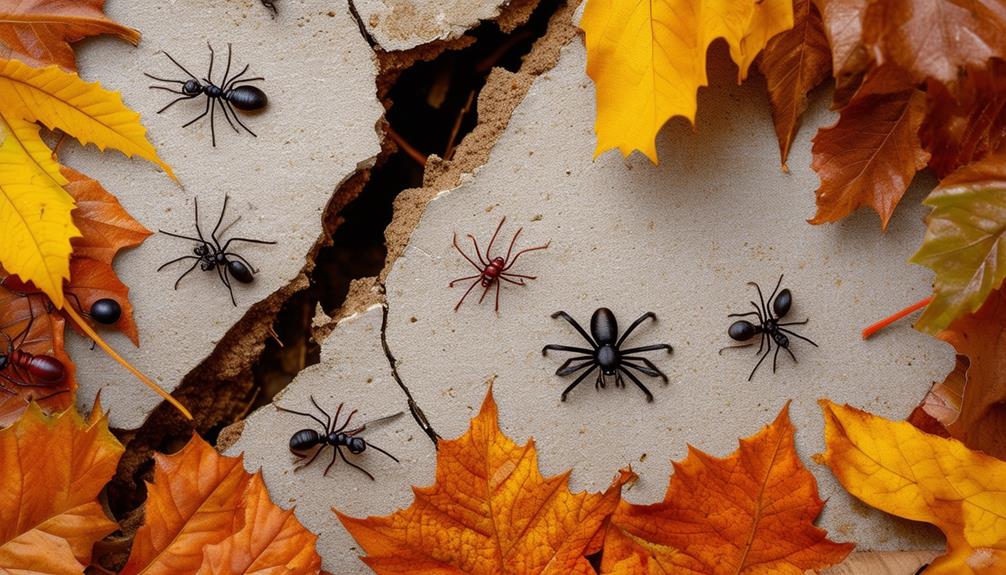Pest control is a crucial aspect of maintaining a healthy and comfortable living environment, especially in urban areas like Toronto. Understanding seasonal pest trends can help homeowners and businesses anticipate pest problems before they become overwhelming. This guide will delve into the different types of pests you can expect throughout the year, how they adapt to seasonal changes, and the importance of effective pest control in Toronto.
Spring: Awakening of Pests
As the weather warms up in spring, various pests begin to emerge from their winter hiding spots. This season marks the start of increased pest activity, particularly for insects that have been dormant during the colder months.
Common Pests in Spring
- Ants: As temperatures rise, ants become active in search of food and nesting sites. Carpenter ants and pavement ants are commonly found in Toronto.
- Termites: Swarmers begin to appear in spring, leading to potential infestations. It’s crucial to monitor for signs of termite activity, such as mud tubes or damaged wood.
- Mosquitoes: Standing water from melting snow or spring rains creates breeding grounds for mosquitoes, making them a nuisance for outdoor activities.
Pest Control Strategies
Effective pest control in Toronto during spring involves:
- Eliminating Standing Water: Remove any sources of stagnant water around your property to reduce mosquito breeding.
- Sealing Entry Points: Inspect your home for cracks and gaps where ants and other pests can enter, and seal them.
- Regular Inspections: Conduct routine checks for termites and other wood-destroying insects, focusing on damp areas in your home.
Summer: Peak Pest Season
Summer is often the peak season for many pests in Toronto. Warmer temperatures and increased humidity create ideal conditions for pest reproduction and activity.
Common Pests in Summer
- Wasps and Hornets: These aggressive insects build nests in trees, under eaves, and other sheltered spots. Summer is when they are most active and can pose a threat to those who venture too close.
- Flies: Houseflies and fruit flies thrive in warm weather, drawn to garbage, food, and decaying matter.
- Bed Bugs: Increased travel during the summer months can lead to a rise in bed bug infestations as these pests hitch rides in luggage and clothing.
Pest Control Strategies
To manage pest control in Toronto during summer, consider the following:
- Proper Food Storage: Keep food covered and stored properly to deter flies and other pests.
- Professional Extermination: If you encounter wasps or hornets, it’s best to contact pest control professionals to safely remove their nests.
- Bed Bug Prevention: Be cautious when traveling; inspect hotel rooms and luggage for signs of bed bugs.
Fall: Preparing for Winter
As temperatures begin to drop, pests start seeking shelter to survive the winter months. This transition can lead to increased indoor pest activity.
Common Pests in Fall
- Rodents: Mice and rats are notorious for invading homes in search of warmth and food. They can enter through small openings and can cause significant damage.
- Spiders: As insects become less active, spiders may move indoors in search of food, leading to more sightings in homes.
- Cockroaches: These pests can become more prevalent as they seek shelter from the cooler weather.
Pest Control Strategies
To combat fall pests, consider the following steps:
- Seal Entry Points: Inspect your home for any gaps or holes where rodents could enter and seal them.
- Reduce Clutter: Keep your home organized and free of clutter, which can provide hiding spots for pests.
- Regular Maintenance: Schedule regular pest control inspections to address potential infestations before they become severe.
Winter: Dormancy and Activity
While many pests become dormant in winter, some, like rodents and certain insects, remain active and can cause problems during the colder months.
Common Pests in Winter
- Rodents: As mentioned, mice and rats are a significant concern in winter as they look for warmth and food.
- Overwintering Pests: Certain pests, like ladybugs and boxelder bugs, seek shelter indoors for the winter. They can be a nuisance when they emerge on warmer days.
- Ants: Some ant species may remain active indoors during winter, especially if the heating is on.
Pest Control Strategies
Winter pest control in Toronto includes:
- Regular Inspections: Check for signs of rodent activity, such as droppings or gnaw marks, and take immediate action if you find any.
- Maintain a Clean Environment: Ensure that food is stored in sealed containers, and garbage is disposed of properly to deter pests.
- Contact Professionals: If you have a persistent pest problem, consider hiring pest control experts to handle infestations.
Conclusion
Understanding seasonal pest trends is essential for effective pest control in Toronto. By being proactive and knowledgeable about what to expect throughout the year, you can take the necessary steps to protect your home and maintain a pest-free environment. Whether it’s sealing entry points in the fall, eliminating standing water in the spring, or keeping food properly stored in summer, consistent vigilance and timely action can help you stay ahead of potential pest problems. For more complex infestations, don’t hesitate to reach out to pest control professionals who can provide expert guidance and solutions tailored to your specific needs.

